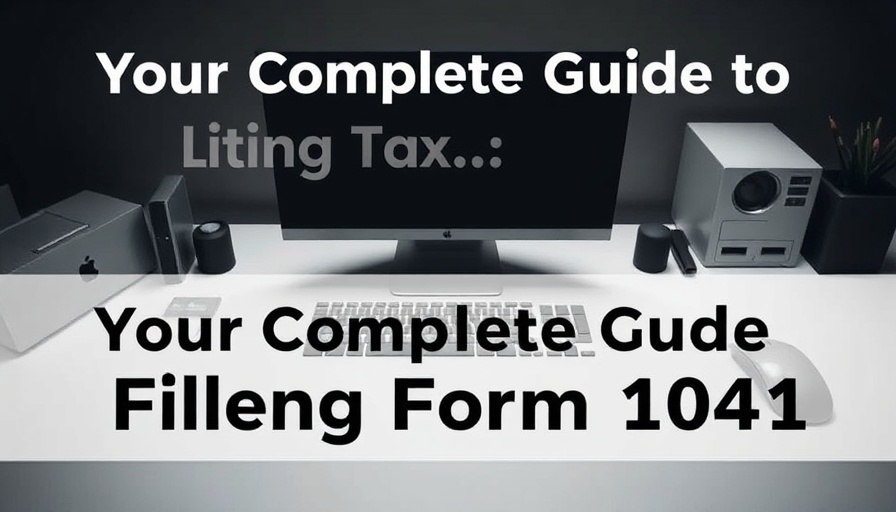
Understanding IRS Form 1041: A Key Tax Document
As the baby boomer generation ages, handling estate and trust taxes is becoming more prevalent for many taxpayers. The IRS Form 1041, or the U.S. Income Tax Return for Estates and Trusts, is essential for reporting income earned by a decedent’s estate after their death. According to Accounting Today, filings for Form 1041 increased by 14.9% between 2020 and 2021, emphasizing the growing importance of this form in tax compliance.
Who Needs to File Form 1041?
Not every estate or trust needs to file Form 1041. This obligation applies only to estates or trusts that generate income or have nonresident alien beneficiaries. It’s critical for fiduciaries managing these estates to be aware of their filing requirements. Income such as rental payments, dividends, and capital gains must be accurately disclosed to the IRS. Failure to file when required can lead to penalties, thus understanding the nuances of this form is crucial.
The Differences between Form 1041 and Form 1040
While both forms deal with tax filings, they serve very different purposes. Form 1040 addresses the income of an individual taxpayer, relevant for incomes earned before a taxpayer’s death. In contrast, Form 1041 specifically reports income generated by an estate or trust post-death. For instance, if a decedent hadn’t yet received their final paycheck, that amount would necessitate a Form 1041 filing, while a final Form 1040 would be submitted for the deceased individual.
Key Dates and Requirements
The due date for Form 1041 can vary depending on whether the estate follows a calendar year or a fiscal year. Executors must ensure they file timely to avoid late fees and complications. Additionally, schedules such as Schedule D (for capital gains and losses) and Schedule K-1 (to report beneficiaries’ income shares) are integral components of the Form 1041 package, ensuring comprehensive income reporting.
Final Thoughts on Filing Form 1041
Understanding IRS Form 1041 can feel daunting, especially for those new to estate management. However, being well-informed about this tax obligation can significantly ease the process. Consulting with a tax professional or utilizing reliable tax preparation software can also provide added guidance, ensuring no critical detail is overlooked and that all obligations are met with confidence.
 Add Row
Add Row  Add
Add 




Write A Comment